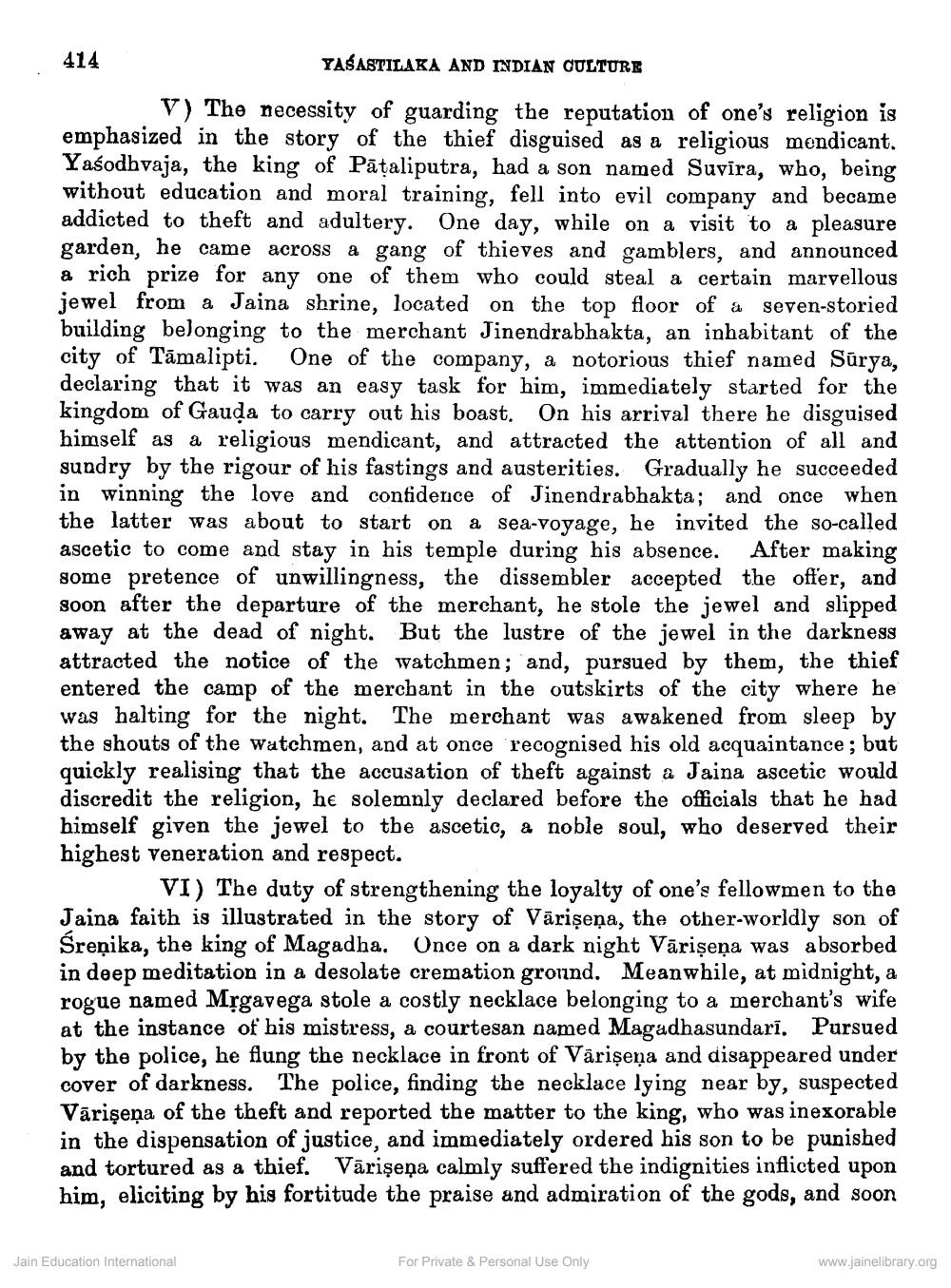________________
414
YAŠASTILAKA AND INDIAN CULTURE V) The necessity of guarding the reputation of one's religion is emphasized in the story of the thief disguised as a religious mendicant. Yaśodbvaja, the king of Pāķaliputra, had a son named Suvira, who, being without education and moral training, fell into evil company and became addicted to theft and adultery. One day, while on a visit to a pleasure garden, he came across a gang of thieves and gamblers, and announced a rich prize for any one of them who could steal a certain marvellous jewel from a Jaina shrine, located on the top floor of a seven-storied building belonging to the merchant Jinendrabhakta, an inhabitant of the city of Tāmalipti. One of the company, a notorious thief named Sürya, declaring that it was an easy task for him, immediately started for the kingdom of Gauda to carry out his boast. On his arrival there he disguised himself as a religious mendicant, and attracted the attention of all and sundry by the rigour of his fastings and austerities. Gradually he succeeded in winning the love and confidence of Jinendrabhakta; and once when the latter was about to start on a sea-voyage, he invited the so-called ascetic to come and stay in his temple during his absence. After making some pretence of unwillingness, the dissembler accepted the offer, and soon after the departure of the merchant, he stole the jewel and slipped away at the dead of night. But the lustre of the jewel in the darkness attracted the notice of the watchmen; and, pursued by them, the thief entered the camp of the merchant in the outskirts of the city where he was halting for the night. The merchant was awakened from sleep by the shouts of the watchmen, and at once recognised his old acquaintance; but quickly realising that the accusation of theft against a Jaina ascetic would discredit the religion, he solemnly declared before the officials that he had himself given the jewel to the ascetic, a noble soul, who deserved their highest veneration and respect.
VI) The duty of strengthening the loyalty of one's fellowmen to the Jaina faith is illustrated in the story of Vārişeņa, the other-worldly son of Śreņika, the king of Magadha. Once on a dark night Vārişeņa was absorbed in deep meditation in a desolate cremation ground. Meanwhile, at midnight, a rogue named Mțgavega stole a costly necklace belonging to a merchant's wife at the instance of his mistress, a courtesan named Magadhasundarí. Pursued by the police, he flung the necklace in front of Vārişeņa and disappeared under cover of darkness. The police, finding the necklace lying near by, suspected Vārişeņa of the theft and reported the matter to the king, who was inexorable in the dispensation of justice, and immediately ordered his son to be punished and tortured as a thief. Vārişeņa calmly suffered the indignities inflicted upon him, eliciting by his fortitude the praise and admiration of the gods, and soon
Jain Education International
For Private & Personal Use Only
www.jainelibrary.org




